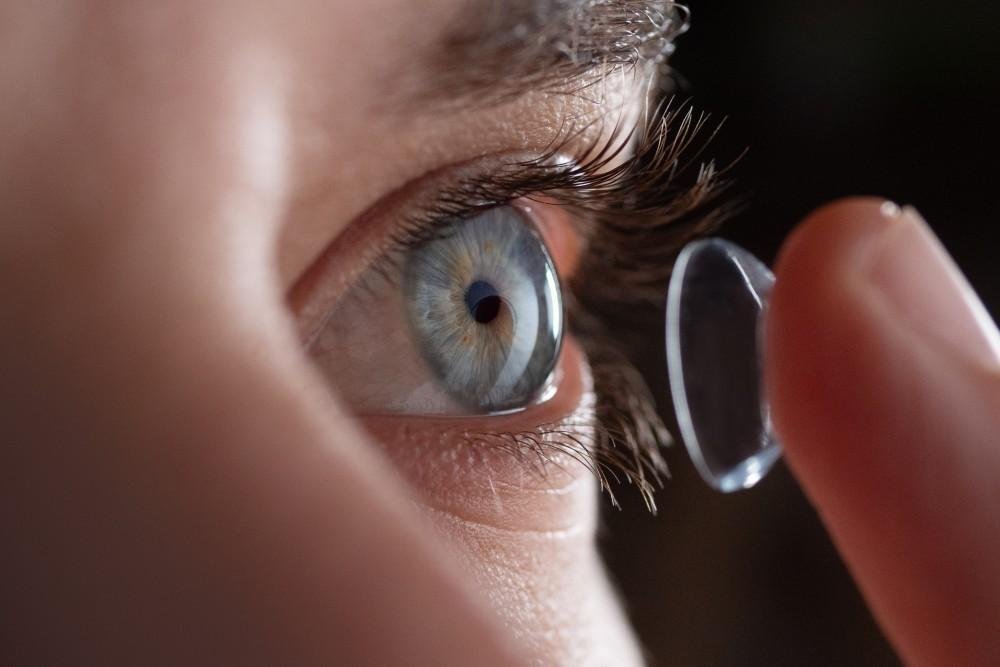If you’ve been told you have thin corneas, you might feel discouraged about your options for vision correction — especially if you were hoping for LASIK. But there’s good news: Implantable Contact Lenses (ICLs) may be the ideal alternative for you.
In this article, we’ll explain:
- Why thin corneas make LASIK risky
- What ICLs are and how they work
- Why ICLs are often the best and safest vision correction solution for people with thin corneas
👁️ What Does It Mean to Have Thin Corneas?
The cornea is the clear, dome-shaped front surface of your eye that helps focus light. A typical cornea is around 540–560 microns thick. People with “thin” corneas usually measure under 500 microns.
Having a thin cornea doesn’t affect your eye health or vision directly, but it can limit your eligibility for certain vision correction surgeries — especially those that involve reshaping the cornea.
⚠️ Why LASIK Isn’t Ideal for Thin Corneas
LASIK and similar procedures (like PRK or SMILE) work by reshaping the cornea with a laser to correct your refractive error. For LASIK to be safe:
- A flap is created in the cornea
- A layer of tissue is removed
- A specific amount of corneal thickness must remain intact to prevent weakening or bulging (ectasia)
Risks of LASIK with Thin Corneas:
- Corneal ectasia (bulging or warping of the cornea)
- Poor visual outcomes due to structural instability
- Post-op complications like glare, halos, and distorted vision
Surgeons must leave a certain amount of untouched tissue (called the residual stromal bed), and with a thin cornea, there may simply not be enough tissue to work with.
✅ Why ICLs Are Ideal for Thin Corneas
ICLs do not reshape or thin the cornea at all. Instead, they are:
- Soft, flexible lenses made of biocompatible Collamer
- Implanted inside the eye, between the iris and your natural lens
- Designed to correct vision from within, rather than altering the outer structure of your eye
Key Advantages for Patients with Thin Corneas:
✅ No Corneal Tissue Removed
ICLs preserve the natural anatomy of your eye, making them especially safe for people with thin or irregular corneas.
✅ No Risk of Corneal Ectasia
Because the cornea remains untouched, ICLs do not cause thinning or weakening of the cornea, even over time.
✅ Excellent for High Prescriptions
ICLs are ideal for correcting moderate to severe myopia (up to -20.00D), which may not be possible with LASIK on a thin cornea.
✅ Reversible and Removable
ICLs can be removed or replaced later if needed — a unique benefit over permanent corneal surgeries.
🧪 Is ICL Right for Everyone with Thin Corneas?
While ICLs are a top choice for many patients with thin corneas, suitability depends on several other factors as well:
Ideal Candidates for ICLs:
- Ages 21 to 45
- Stable prescription for at least one year
- Healthy eyes, free of cataracts, glaucoma, or infections
- Sufficient anterior chamber depth (your eye surgeon will measure this)
If you also have astigmatism, a toric version of the ICL is available to correct that as well.
📊 What to Expect: Safety and Results
ICL surgery is performed under local anesthesia and takes about 15–30 minutes per eye. Most patients experience:
- Rapid visual recovery — often within 24–48 hours
- 20/20 vision or better
- Minimal to no discomfort
Clinical Success:
- Over 2 million ICLs implanted globally
- 95–99% patient satisfaction
- Extremely low complication rates, especially in properly screened candidates
🧭 Your Next Step: Evaluation and Imaging
If you’ve been told you’re not a LASIK candidate due to thin corneas, don’t give up on vision correction. A comprehensive eye exam with a qualified ophthalmologist can determine whether ICLs are right for you.
Tests may include:
- Corneal thickness mapping (pachymetry)
- Corneal topography
- Anterior chamber depth measurement
- Full eye health evaluation
✨ Final Thoughts: The Best Option for a Delicate Eye Structure
Having thin corneas doesn’t mean you’re stuck with glasses or contacts forever. Implantable Contact Lenses offer a safe, effective, and long-term solution for clear vision — without altering the structure of your eye.
With ICLs, you can:
- Preserve your natural cornea
- Avoid complications from corneal thinning
- Enjoy high-definition vision and long-term stability
Talk to your eye doctor about whether ICLs are the right solution for you.




